Chinese envoy: stable ties a must
Updated: 2013-07-10 11:27
By Zhang Yuwei in New York (China Daily)
|
||||||||
China and the US - the world's two largest economies - should continue to develop "stable and healthy" relations, said Cui Tiankai, China's ambassador to the US, in a rare interview with American news network CNN on Monday prior to the Fifth China-US Strategic and Economic Dialogue.
"The United States is the most powerful country in the world, the most developed economy in the world," said Cui, adding that "China is working very hard to modernize the country to develop its economy and improve the livelihood of its people."
China doesn't regard itself as a superpower and is still a developing country, he said. It is "obvious" that it needs to have "stable and healthy" relations with the US, Cui added, speaking in fluent English.
Cui, who most recently served as vice-minister of foreign affairs, took office in Washington in April. His previously served as the Chinese ambassador to Japan and was part of the Chinese delegation to the UN.
Cui's remarks covered topics from cyber security and territorial issues to denuclearization and the new great power relationship between the US and China, all subjects expected to be on the S&ED agenda as well.
Following the meeting between Chinese President Xi Jinping and his US counterpart Barack Obama in California last month, many observers wonder how the case of the former US intelligence contractor Edward Snowden might affect the tone set by the two world leaders.
"Of course, he made some revelations and then we still want some clarification from the United States about whether his revelations are true or not," the ambassador said, "because these revelations were about attacks on infrastructure and intrusion into the privacy of Chinese citizens."
Cui, however, said the case was between Snowden and the US government and "has nothing to do with" China. "It's none of our business.
"And it should not affect the overall relationship between the two big countries. This is an individual case," he added.
The Hong Kong special administrative region government followed their own laws and rules without any interference from the central government, he said.
"My guess is that China will rightfully ask for answers regarding Snowden's claim about hacking into Tsinghua University and Chinese cell phone companies," said Jon Taylor, a political science professor at the University of St Thomas in Houston and a China watcher.
"I'd also guess that the US will want to change the subject and try to focus on complaints about the theft of trade secrets and other intellectual property," said Taylor, adding it's where the Cyber Working Group can eventually offer room for both conciliation and consensus.
"The issue will likely be played down by both sides in the interest of encouraging positive dialogue and achieving a productive meeting," he added.
Snowden's case has been largely seen as something that will worsen existing tensions between the two countries on the cyber security issue, where the US has accused China of commercial cyber espionage, which China has denied.
"I don't think finger-pointing would be helpful to either side," Cui said, adding the Cyber Working Group formed in April is an indication that the two are "working together" on this. "And technologically, the United States is much more advanced than China in information technology. So normally, I always believe it should be the weaker side worrying about the stronger side, not the other way around," he added.
On Monday, Chinese and US officials held their first Cyber Working Group meeting in Washington aimed at addressing cyber concerns, which both sides call a "shared challenge".
yuweizhang@chinadailyusa.com
(China Daily USA 07/10/2013 page1)
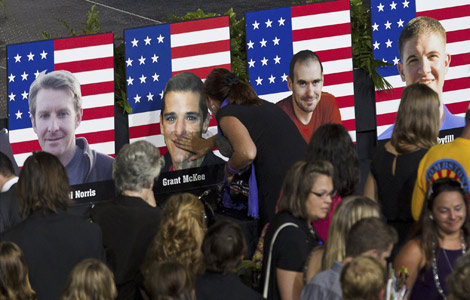
 Thousands pay final tribute to US firemen
Thousands pay final tribute to US firemen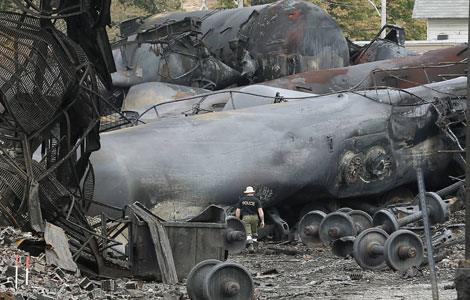
 Dozens feared dead in Quebec derailment
Dozens feared dead in Quebec derailment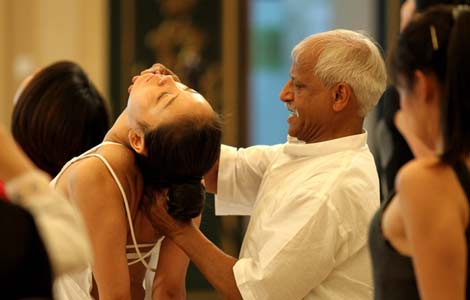
 Breathe deep, this is the real thing
Breathe deep, this is the real thing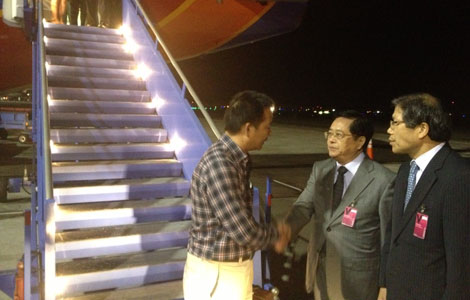
 Families of crash victims in SF
Families of crash victims in SF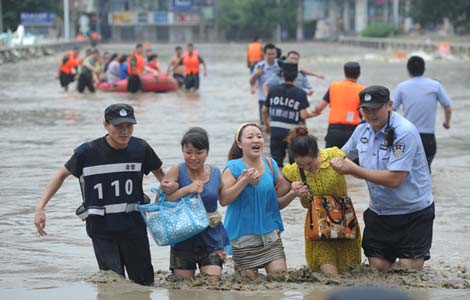
 Rainstorms cause severe flooding and landslides
Rainstorms cause severe flooding and landslides
 Coal burning in China's north can shorten lives
Coal burning in China's north can shorten lives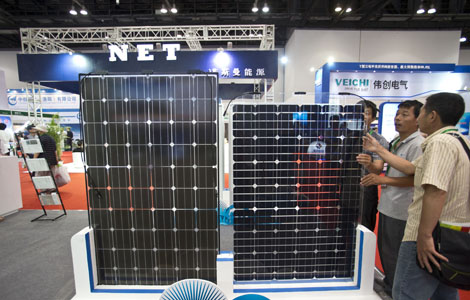
 Some solar companies see brighter first half
Some solar companies see brighter first half
 Thousands flock to Texas Capitol over abortion
Thousands flock to Texas Capitol over abortion
Most Viewed
Editor's Picks

|

|

|

|

|

|
Today's Top News
Watchdog: Trans-fat levels meet standards
Most passengers on crashed plane reported safe
China, US hold talks on cybersecurity
Shenzhen Red Cross denies organ claim
Rainstorms cause severe flooding and landslides
Japan tags China as 'security threat'
Honesty is a challenge for CPC
Snowden hasn't accepted asylum
US Weekly

|

|








